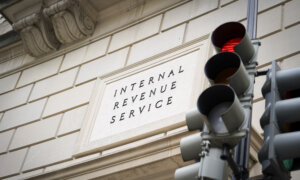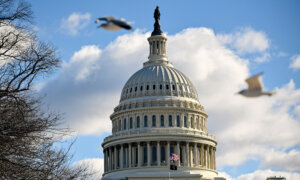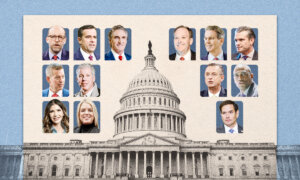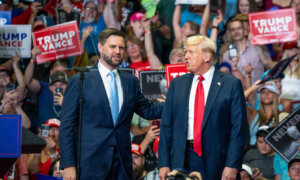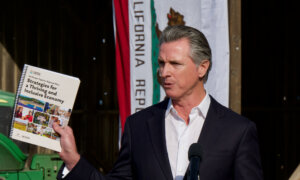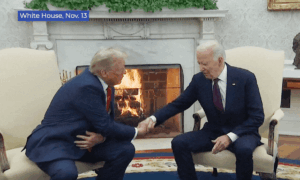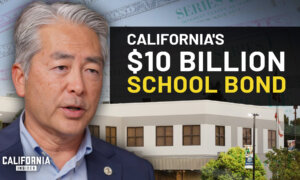President-elect Donald Trump has unveiled plans to create the External Revenue Service (ERS), a new agency modeled after the IRS but aimed at collecting tariffs, duties, and revenues from foreign countries rather than U.S. taxpayers.
Trump announced the plan in a Jan. 14 social media post, in which he framed the proposal as a move to shift the financial burden of taxation away from U.S. citizens and onto foreign entities benefiting from trade with the United States.
“For far too long, we have relied on taxing our Great People using the Internal Revenue Service (IRS),” he wrote. “Through soft and pathetically weak Trade agreements, the American Economy has delivered growth and prosperity to the World, while taxing ourselves. It is time for that to change.”
Trump has consistently criticized what he sees as unfair trade agreements crafted by past leaders, arguing that these deals disproportionately benefit foreign partners while disadvantaging the United States. He has also expressed deep concern over the nation’s trade deficit, which totaled $773.4 billion in 2023, including both goods and services. Pointing to this massive trade imbalance, Trump has defended his calls for broad tariffs on imports as a necessary step to address what he describes as a long-standing injustice sapping the United States’ economic strength.
Trump said the ERS will launch on Jan. 20, his first day in office. The agency is to focus on revenue generation from foreign sources by enforcing tariffs, duties, and other trade-related fees on goods imported into the United States. The idea appears to be to shift some of the responsibility for funding the government away from domestic taxpayers and toward foreign nations and corporations benefiting from access to the U.S. market. “We will begin charging those that make money off of us with Trade,” Trump said. “They will start paying, FINALLY, their fair share.”
Customs and Border Protection (CBP), which resides within the Department of Homeland Security, collects tariffs from U.S. importers, not foreign countries or companies that export products. The importers pay the tax to the CBP.
In July 1789, then-President George Washington created the United States Customs Service, the forerunner to the CBP.
Iain Murray, the vice president for strategy and senior fellow at the Competitive Enterprise Institute, says more details are required to assess the proposal accurately.
“It is unclear from this announcement what exactly the External Revenue Service will do that U.S. Customs does not already do,” Murray told The Epoch Times.
Trump’s announcement is the latest development in his long-standing push for economic nationalism. During his first term, Trump frequently used tariffs—or the threat of them—as a bargaining chip to renegotiate trade deals he deemed unfavorable to U.S. businesses. He has said that tariffs protect domestic industries from unfair foreign competition and encourage the reshoring of manufacturing jobs.
Trump has also consistently championed tariffs as a versatile tool for policy negotiations. Recently, Trump warned Canada and Mexico of impending 25 percent tariffs unless they took decisive steps to curb the flow of fentanyl and illegal immigrants across their borders into the United States.
Critics of Trump’s proposed tariffs argue that they could reduce the United States’ economic output and increase costs for U.S. consumers, not only for imported goods such as Canadian lumber but also for products that rely on these imports, such as houses.
Supporters believe that the long-term advantages of bolstering domestic production and decreasing reliance on foreign imports outweigh the short-term economic challenges posed by tariffs.
A recent analysis of Trump’s proposed tariffs by the nonpartisan Congressional Budget Office found that they could significantly reduce the U.S. federal deficit over the next decade, while their effect on consumer prices and economic output would be relatively modest.


